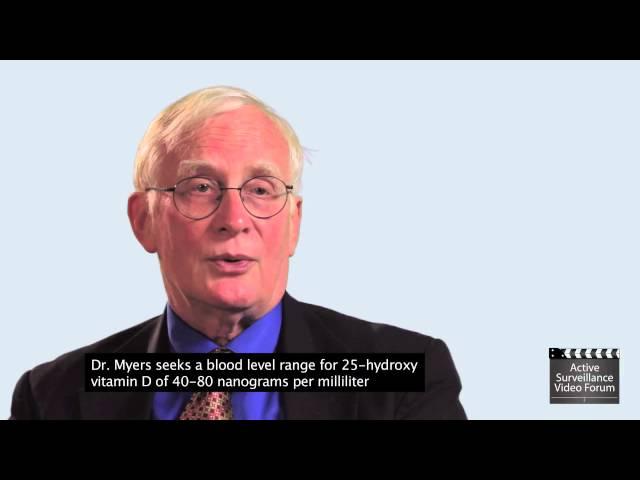
Has a vitamin D deficiency been linked to prostate cancer?
Комментарии:

This is well known in medical research about low levels of vitamin D in regards to cancer and other diseases. This video should be getting 500,000 hits not just a few thousand . Guys Share this with your friends.
Ответить
Francisco Ballesteros
1 day ago
Sunshine vitamin or steroid hormone was the most powerful medicine on earth given by our CREATOR. Sun Exposure
The best way to get vitamin D3 is through sun exposure. Go outside and get some sun, especially in the mid-day when it’s the strongest.
However, many of us use sun block, which is good for our skin but not so helpful when it comes to the production of vitamin D3. By blocking out the UVA and UVB rays, sun block can interfere the skin’s ability to synthesize vitamin D3. GOD BLESS.

Some one told me that vitamin d harmful for those having kidney stones . Is it true .
Ответить
Understanding the costs and benefits of investing in cancer
Posted by: Brian Ferguson, Posted on: 1 November 2016 -
Understanding the costs associated with cancer is vital in order that resources are used for maximum effect.
And investing in prevention and early intervention is critical if we are going to reduce the emotional and physical impact of cancer on individuals, families, friends and those that care for people with cancer.
Calculating the health care and wider costs of cancer - as well as assessing the cost-effectiveness of prevention, early intervention and treatment - is a fundamental challenge faced by decision makers across the health and social care system.
The costs of cancer can be felt at an individual level: work by Macmillan has shown that most (83%) cancer patients incur an average cost of £570 per month as a result of their illness.
It can also be felt in the national economy: Oxford University estimate the cost of cancer to the economy is £7.6 billion a year due to premature deaths and time taken off work.
Costs and the health system
The Independent Cancer Taskforce Report (ICTR) set out the need for there to be clearer accountability of spend on cancer and emphasised the need for action in prevention and early diagnosis to reduce the longer term burden on the health system.
It says: “The National Audit Office has estimated cancer services cost the NHS approximately £6.7bn per annum in 2012/13. The Five Year Forward View projections indicate that this will grow by about 9% a year, implying a total of £13bn by 2020/21.”
Recommendation 95 in the strategy specifically asks that: “NHS England and Public Health England should work with Monitor and other bodies to consider how to develop better health economic evaluation of new service models and interventions.”
We have a dedicated health economics team that commissions work to assess the economic impact of prevention and early intervention, and an example of this is recent work on bowel cancer in direct response to Taskforce Recommendation 95.
This work has summarised the available cost-effectiveness evidence. Cost-effectiveness is a key concept in health economics and is concerned with the value we get from the money spent – where value is often expressed in terms of improving both survival and quality of life.
For instance if we invested resources in the best possible way in bowel cancer then we would see improvements in survival, and also improvements in the quality of life of individuals who are staged earlier and therefore do not suffer the more unpleasant effects of treatment that could potentially be avoided.
This is why a ‘return on investment’ (RoI) type approach has been followed in this work: how do we make sure that resources are invested in such a way that we achieve health gains at the same time as avoiding health care and other system costs further down the line.


























